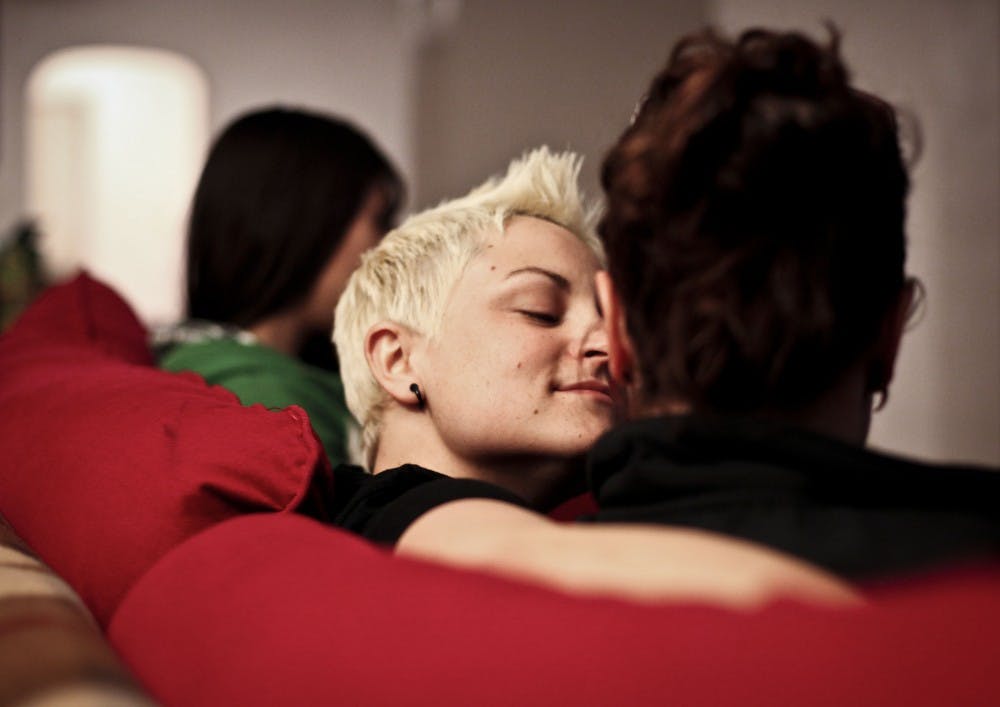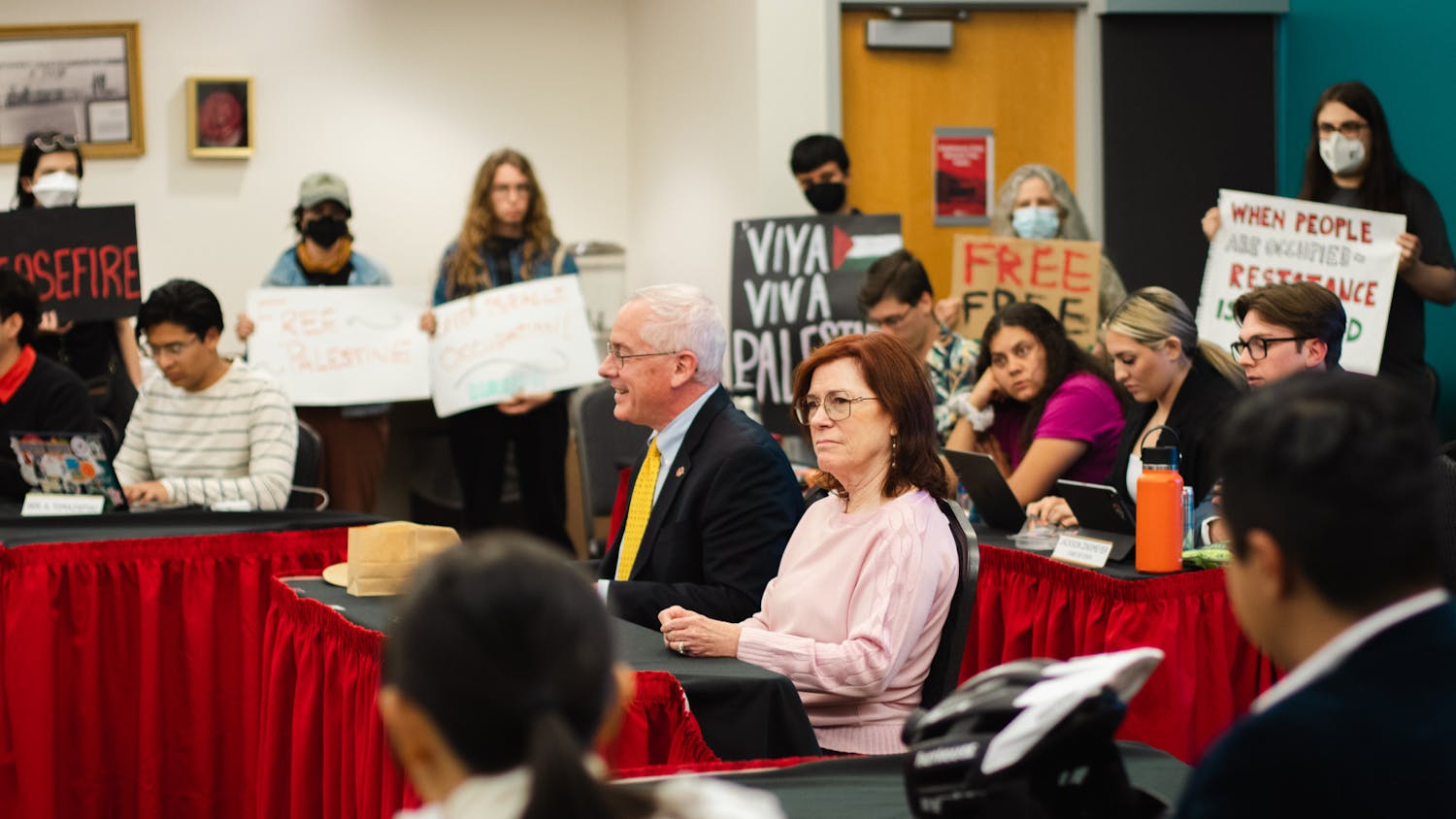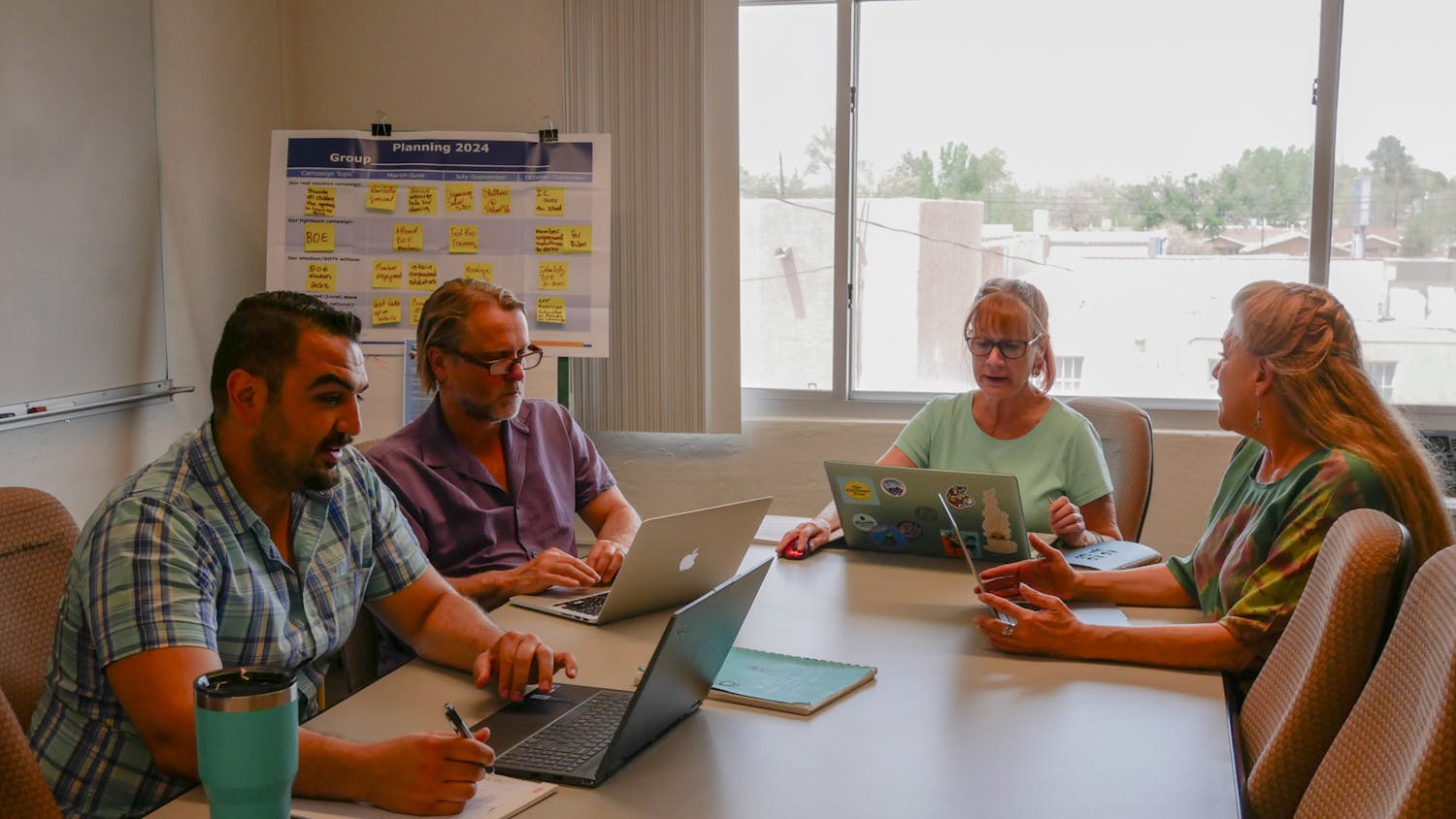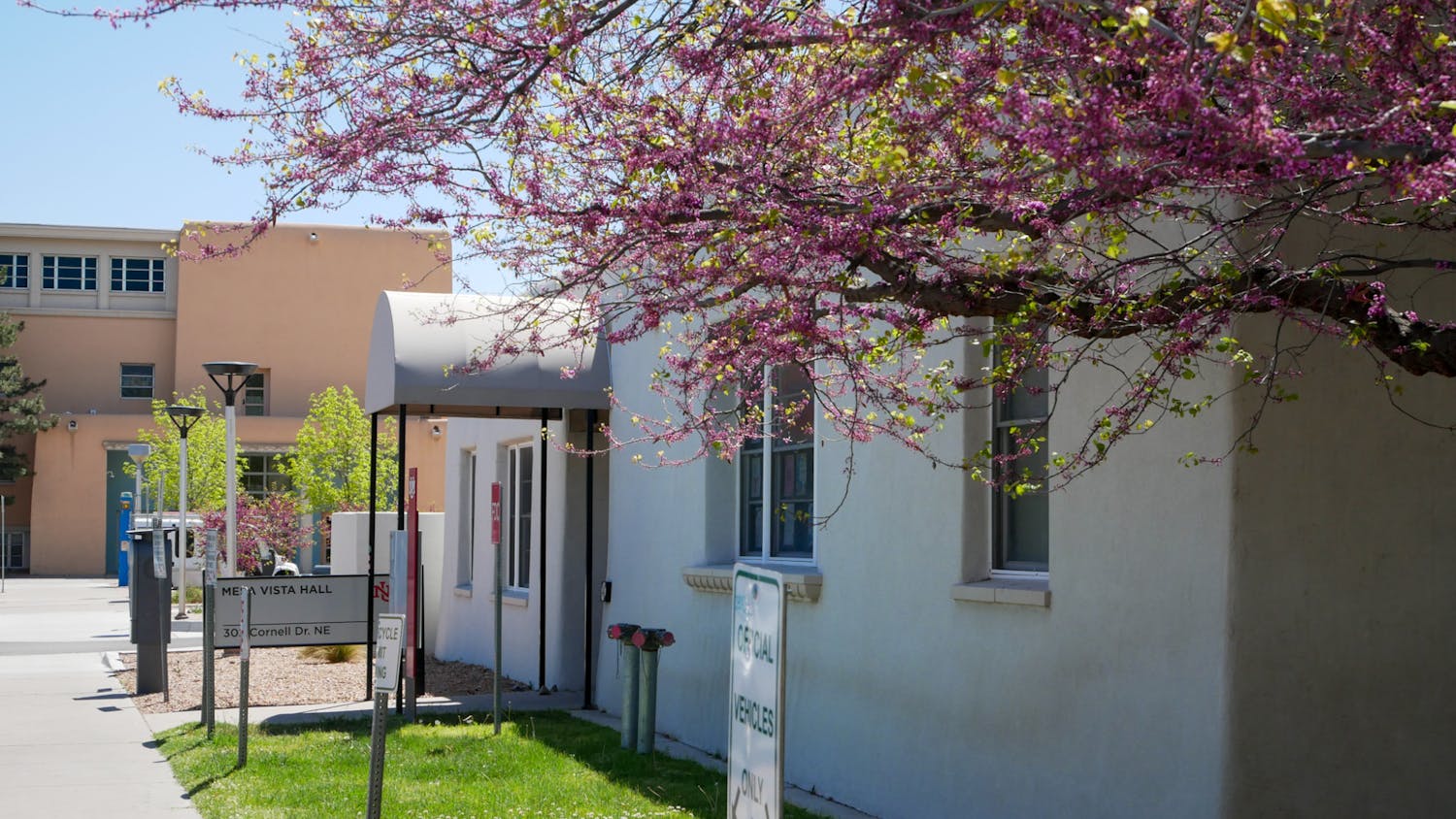Before she was honorably discharged, Leasa Medina would go out with her girlfriend and tell people about her “cousin” in the military.
Her “cousin’s” experiences serving in the Middle East were really her own, since before the “Don’t Ask, Don’t Tell” policy was repealed, service members were prohibited from being openly gay.
“Up until recently, it’s considered a dishonorable discharge if you’re found to be gay in the military, which is the equivalent of a felony, and any money you owe the military, like any tuition assistance, you have to pay back,” she said.
Medina is now finishing the last semester of a psychology degree at UNM, and she works at the Women’s Resource Center on campus, where she recently started a Women’s Veterans group with the center’s support.
“There’s a lot of abuse that goes on with women when they’re deployed. One in three females in the military are raped,” she said. “There’s a lot of issues. Women’s health is ignored in the military. So I think women deserve the chance to say, ‘I stood up and I fought for my country, and I served my country,’ and be recognized and have their own group.”
Medina went to school for two years while serving in the reserve before she was deployed to the United Arab Emirates for five months. She said it was during her deployment that she realized the extent to which she would have to hide her identity.
“Being deployed, it’s a completely different world,” she said. “You’re surrounded by these people 24/7. … You have to be even more careful about what you say, who you talk to, how you talk on the phone.”
Getting caught was a huge concern for service members under Don’t Ask, Don’t Tell, Medina said. She said if somebody was suspected of being gay, an investigation was opened into his or her sexuality. Such an
investigation could follow the person even if it ended up being dropped.
“You can fight it, but even if you win, you can pretty much kiss your career goodbye because it’s always going to be on your record that you were investigated,” she said.
And if “convicted” of being gay, a person’s dishonorable discharge would have far-reaching implications, Medina said.
“With a felony on your record, a dishonorable discharge from the military, when you go to get a job they look at that,” she said. “And to say, ‘It’s because I’m gay,’ that’s probably not any easier.”
When she came back, she felt disillusioned by her military experience.
“It was when I was deployed that I really lost respect for this country,” she said. “And when I came home, I kind of chose my gay identity. … And I stopped caring as much if I got caught.”
But she was still careful not to show affection to women if she thought other people from her unit might be around. She said she avoided certain places, such as Maloney’s Tavern downtown, if she wanted to express her sexual identity.
Get content from The Daily Lobo delivered to your inbox
She said she was shocked by civilians’ discriminatory attitudes toward the military as a whole.
“I never like to wear my uniform on campus,” she said. “I got told off a couple times. … This guy (told me), ‘There’s blood all over that uniform.’”
Working for the military while going to school presented challenges, because she could be called to combat training or to perform other duties at any time, Medina said.
“When you go to combat training you have to do a bunch of stuff, and they don’t care if you’re in school or not. And, to be honest, UNM doesn’t really care, either,” she said. “I’ve actually encountered that with a few different teachers at UNM, where they’re not very sympathetic at all. It’s not like I have a choice. They’re making me go.”
Even with the repeal of the Don’t Ask, Don’t Tell policy, most people in the military don’t want other service members to know they’re gay, Medina said.
“There’s still a lot of people that don’t feel comfortable coming forward and saying that they’re gay because of harassment,” she said. “I would definitely still hide it. … There’s a couple of my friends that are still in, and they said the same thing. No one feels comfortable with it, still. So, we’ll see. I don’t know. This (repeal) is a big step.”






